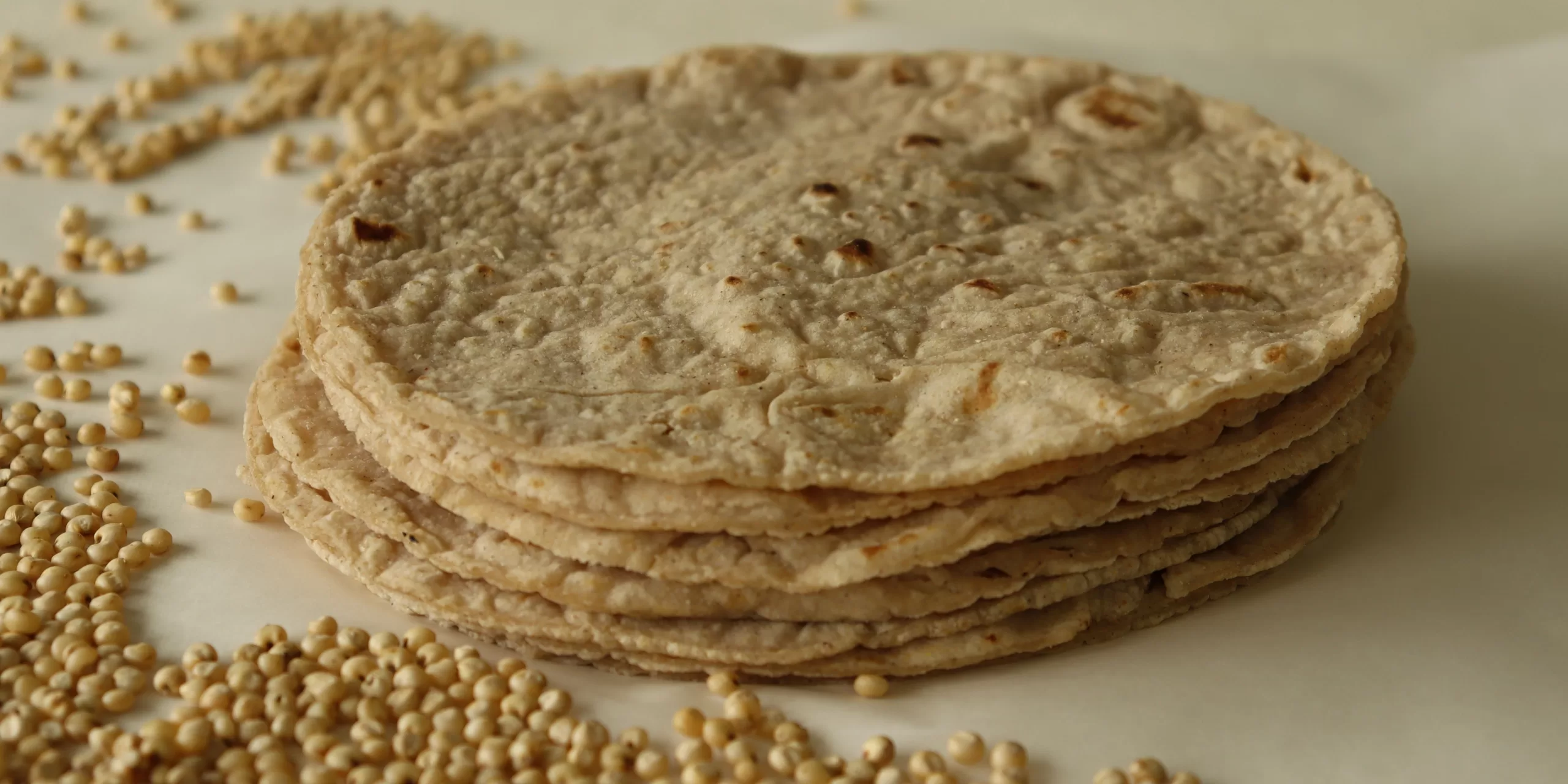

Dt. Natasha Mohan
Dietitian Natasha Mohan is one of the most influential and renowned nutritionist and dietitian, with over 3 Million Followers on YouTube and 200+ Million Views and with 10+ Years of Experience. Dietitian Natasha Mohan is a transformation expert, Motivational Speaker and Lifestyle Expert. She has touched million of lives. She specializes in Therapeutic Diets Like, PCOS/PCOD, Thyroid, Diabetes, Cholesterol, Blood pressure, and other lifestyle disorder.
Table of Contents
Red Jowar Benefits: A Nutritional Powerhouse for Better Health
Red jowar, also known as red sorghum, is a powerhouse grain with numerous health benefits. This ancient grain has gained popularity due to its high nutritional value, unique taste, and versatility in cooking. In this blog, we’ll explore the benefits of red jowar, its nutritional content, and how it can support overall health and weight loss.
Understanding Red Jowar
Red jowar is part of the sorghum family, a group of grains widely consumed in various parts of the world. It’s naturally gluten-free, making it an excellent option for people with gluten intolerance or those who prefer gluten-free diets. The grain is loaded with essential nutrients, making it a great alternative to rice, wheat, and other common grains.
1. High in Antioxidants
One of the standout benefits of red jowar is its high antioxidant content. Red jowar contains anthocyanins, which give it its red color and provide a strong antioxidant effect. Antioxidants combat oxidative stress, reducing inflammation and protecting against chronic diseases like heart disease and cancer.
2. Excellent Source of Dietary Fiber
Red jowar is a rich source of dietary fiber. Fiber plays a critical role in digestive health, as it helps regulate bowel movements and prevent constipation. High-fiber foods like red jowar also promote satiety, which can aid in weight management. Including red jowar in your meals can help you feel fuller for longer, reducing the need for frequent snacking.
3. Supports Heart Health
The fiber and antioxidants in red jowar contribute to heart health by lowering cholesterol levels and reducing blood pressure. Regular consumption of red jowar can aid in maintaining healthy blood lipid profiles, which is essential for reducing the risk of heart disease.
Red Jowar Benefits: A Nutritional Breakdown
Including red jowar in your diet provides an array of nutrients that support overall health. Here’s a closer look at what makes red jowar a nutritional superstar:
- Rich in Iron: Iron is essential for maintaining healthy blood cells and preventing anemia. Red jowar’s high iron content supports better oxygen flow, increasing energy levels.
- Packed with Protein: For those who follow vegetarian or vegan diets, red jowar is a great source of plant-based protein. Protein is necessary for muscle repair, immunity, and hormone regulation.
- Loaded with Essential Vitamins and Minerals: Red jowar contains B vitamins, magnesium, potassium, and phosphorus. These nutrients are important for energy production, bone health, and maintaining a strong immune system.
1. Assists in Weight Management
Red jowar is an excellent addition to a weight loss diet. The combination of fiber and protein makes red jowar filling, reducing hunger pangs. As a whole grain, it has a lower glycemic index, preventing rapid spikes in blood sugar and supporting steady energy release. This is especially helpful for those on a thyroid diet plan for weight loss, as it helps regulate metabolism and keeps cravings in check.
2. Helps Control Blood Sugar Levels
The low glycemic index of red jowar is particularly beneficial for those with diabetes or insulin resistance. Foods with a low glycemic index are digested and absorbed slowly, leading to a gradual increase in blood sugar levels. Including red jowar in meals can support better blood sugar control, reducing the risk of spikes and crashes.
3. Enhances Bone Health
Red jowar is a good source of magnesium, phosphorus, and calcium, which are essential for maintaining strong bones. Regular consumption of red jowar can contribute to bone density and reduce the risk of osteoporosis. For people looking to strengthen their bones naturally, this grain can be an invaluable addition to their diet.
How to Incorporate Red Jowar into Your Diet
Adding red jowar to your meals is simple and versatile. You can use it in place of rice, add it to soups, or include it in baked goods. Here are a few ways to enjoy red jowar:
- Red Jowar Upma: Prepare a nutritious breakfast by cooking red jowar with vegetables and spices for a hearty upma.
- Red Jowar Salad: Mix cooked red jowar with fresh vegetables, herbs, and a dash of olive oil for a refreshing salad.
- Red Jowar Porridge: Start your day with a warm bowl of red jowar porridge, sweetened with honey and topped with fruits and nuts.
- Baked Goods: Substitute a portion of wheat flour with red jowar flour for a nutritious twist on baked items like muffins and pancakes.
Conclusion
Red jowar benefits are undeniable. From improving heart health to supporting weight management, this ancient grain offers numerous health advantages. With its impressive nutritional profile and versatile nature, red jowar can become a staple in a healthy, balanced diet. So, whether you’re looking to lose weight, improve digestion, or boost heart health, red jowar is a wise choice.
Including red jowar in your diet can also complement other healthy habits. For those following a thyroid diet plan for weight loss, the low glycemic index and high fiber content of red jowar can be particularly beneficial. Embrace the health benefits of red jowar and start incorporating it into your meals today!
Red jowar is rich in antioxidants, fiber, and essential nutrients like iron and protein. It supports heart health, aids in weight management, helps control blood sugar, and promotes better digestion.
Yes, red jowar is ideal for weight loss. Its high fiber and protein content help you feel full for longer, reducing the need to snack between meals. Additionally, its low glycemic index supports stable blood sugar levels.
Absolutely. Red jowar has a low glycemic index, meaning it doesn’t cause rapid spikes in blood sugar. This makes it a safe choice for people with diabetes when eaten in moderation as part of a balanced diet.
Red jowar is versatile and can be used in various recipes. You can make red jowar upma, porridge, salads, or even add its flour to baked goods like muffins and pancakes for a nutritious twist.
Yes, red jowar is naturally gluten-free, making it an excellent grain choice for people with gluten intolerance or those following a gluten-free diet.

